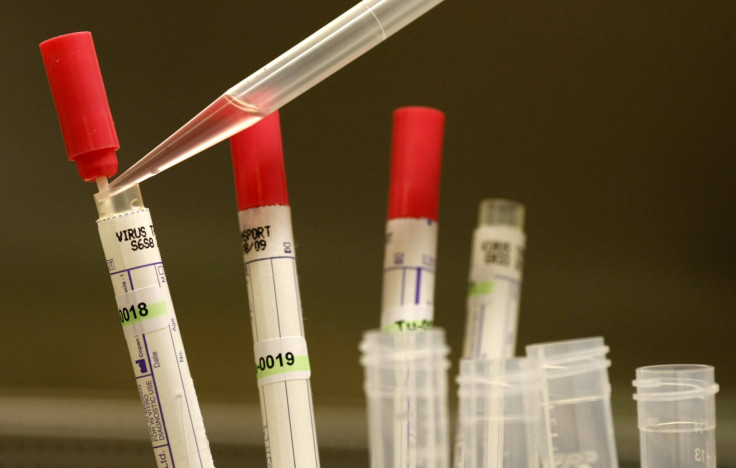ZMapp Ebola Treatment: What To Know About The Experimental Drug Made From Tobacco

Two U.S. citizens infected with the Ebola virus while in Liberia were the first recipients of ZMapp, an experimental treatment created by Mapp Biopharmaceutical and LeafBio to help fight the sometimes-deadly virus. The patients, both aid workers, appear to be improving after receiving ZMapp, but questions remain about the drug, created with tobacco plants, which had previously been tested only on primates.
How Does The ZMapp Ebola Treatment Work?
The ZMapp cocktail fuses the MB-003 and ZMAb Ebola treatments. Created by California-based Mapp Biopharmaceutical, MB0-003 was shown to offer 100 percent protection to monkeys from Ebola when it was administered to the animals immediately after they were exposed to the virus. ZMapp offered monkeys a 100 percent survival rate a full day after exposure and 50 percent after two days, NBC News reported. ZMapp combines the “best components” of the two treatments, says a ZMapp information sheet recently posted on the Mapp Bio site.
Since the antibodies present in the serum were taken from mice exposed to Ebola, the drug is known as a three-mouse monoclonal antibody mixture, Forbes reports. Ideally, the body’s immune system can vigilantly fight off the virus once the antibodies from the serum are present in the blood system. The treatment offers an artificial immune response to the virus, and the lab-made antibodies then fight the infection by sticking to the Ebola virus.
What Does Tobacco Have To Do With The Treatment?
The artificial antibodies used in the treatment are created from a tobacco-plant strain found in Australia. The plants are altered specifically for the serum and then harvested and ground into the green mix used in the serum doses, says the Washington Post. The plants serve as an ideal place to grow the massive amounts of the antibodies needed for the treatment. Speaking to Bloomberg, Charles Arntzen, a plant biotechnology expert at Arizona State University, says that the genes of the antibodies scientist want are fused to the tobacco genes, infecting the tobacco with the virus. The plant produces antibodies that are subsequently separated from the plant when it is ground up.
Why Is It Available Only In The U.S.?
Since the antibodies used in the treatment are created at Mapp Biopharmaceutical’s plant in Kentucky, the small amount of the ZMapp that exists is located in the United States. The process to create the treatment is extremely expensive and the serum remains in an experimental stage.<script src="http://assets-polarb-com.a.ssl.fastly.net/assets/polar-embedded.js" async="true" data-publisher="IBTimes" data-poll-id="197833"></script>Could The Treatment Work On A Larger Scale?
Medical professionals say that ZMapp could in theory be used to combat the Ebola outbreak in West Africa. But officials continue to remind people that other than the two American patients, no human testing has been done with the vaccine and it has not been approved to be used on humans in North America or anywhere else. Producing enough ZMapp for human trials would take at least two months.
How Did The U.S. Patients Get Access To ZMapp?
In order for the two Americans to receive the ZMapp treatment, it is believed the FDA expedited the process needed to approve human testing of an experimental drug, CNN reports. This could have been completed under the FDA’s “compassionate use” regulation, which offers experimental drugs to be used outside of clinical trials. Dr. Kent Brantly received his first dose of the serum after being ill for nine days. Nancy Writebol received her dose around 7-10 days after being exposed to the Ebola virus. The serum was flown to the hospital in Liberia where both Brantly and Writebol were receiving treatment.
Is The ZMapp Treatment Safe?
Medical professionals continue to stress that the ZMapp hasn’t been approved for human trials and that potential side effects remain unknown. Doctors working with Brantly and Writebol say their conditions have improved since taking ZMapp. But there is no way to immediately connect the patients’ improvement to the vaccine. Their improvement could be the result of their immune systems naturally combating the virus.
© Copyright IBTimes 2025. All rights reserved.






















